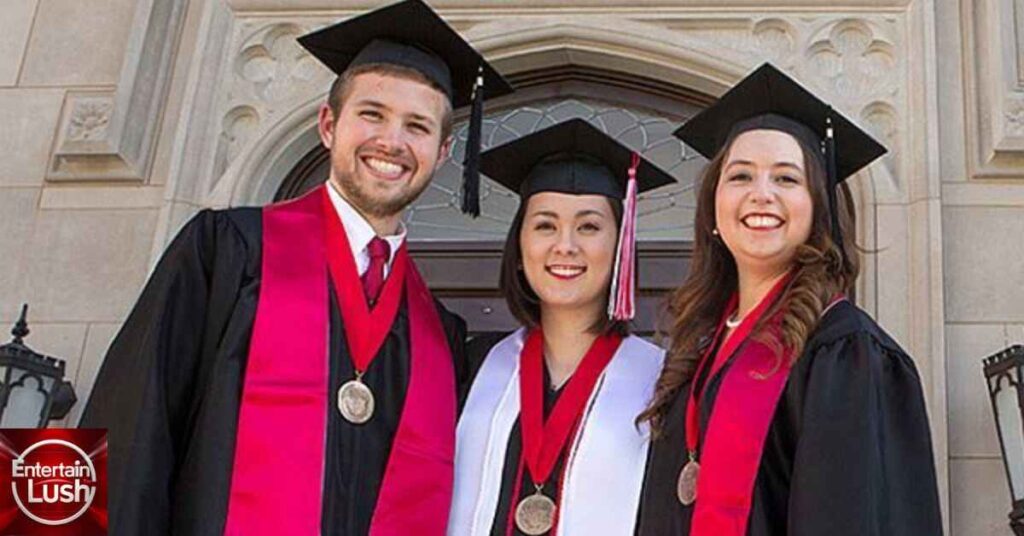Keitha Ludlum Bradley stands as a transformative figure in Arkansas education. For years, the state grappled with educational challenges, from outdated curricula to inadequate teacher support. These issues hindered student achievement and community growth. Bradley recognized these problems and took action.
Through innovative teaching methods, policy advocacy, and community engagement, she reshaped Arkansas’s educational landscape. Her tireless efforts have improved student outcomes, empowered educators, and strengthened communities. Bradley’s impact continues to inspire and guide educational progress in Arkansas today.
Early Life and Education
Keitha Ludlum Bradley was born and raised in Arkansas. She grew up in a close-knit family that valued education. From a young age, Keitha showed curiosity and a love for learning. Her parents encouraged her academic pursuits. The local schools she attended shaped her early understanding of education. These experiences laid the foundation for her future career in teaching.
Childhood in Arkansas
Keitha’s childhood in Arkansas was marked by community involvement. She participated in school events and local activities. Her family played a key role in her upbringing. They instilled values of hard work and perseverance. The rural setting of her hometown influenced her perspective on education. She witnessed firsthand the challenges faced by schools in small communities.
Educational Journey
Keitha excelled in her studies throughout her school years. She attended public schools in Arkansas, where she was an active student. Her high school teachers recognized her potential. After graduation, she pursued higher education at a state university. There, she focused on education studies. This choice reflected her growing passion for teaching and learning.
Influences and Inspirations
Several key figures shaped Keitha’s educational path. Her elementary school teacher sparked her interest in teaching. A high school mentor guided her towards education as a career. In college, a professor’s innovative teaching methods inspired her. These influences combined with her own experiences in Arkansas schools. They motivated her to pursue a career in education reform.
Career as an Educator
Keitha began her teaching career in a small Arkansas school. She quickly gained a reputation for her dedication to students. Her classroom became known for its engaging atmosphere. She implemented creative teaching methods that captured students’ interest. Her early success laid the groundwork for her future in education.
Early Teaching Experience
In her first years of teaching, Keitha faced typical challenges of a new educator. She worked hard to connect with students from diverse backgrounds. Her enthusiasm for teaching was evident in her daily lessons. She collaborated with experienced teachers to improve her skills. These early experiences shaped her understanding of effective education.
Innovative Teaching Methods
Keitha developed unique approaches to engage her students. She incorporated local history and culture into her lessons. This made learning more relevant to her students’ lives. She used hands-on activities to teach complex concepts. Her methods improved student participation and understanding. Other teachers began to take notice of her innovative techniques.
Rise to Educational Leadership
Keitha’s success in the classroom led to new opportunities. She was appointed to lead teacher training programs. Her ideas for curriculum improvement gained attention from school administrators. She eventually became a principal, known for supporting teacher creativity. Her leadership style focused on collaborative problem-solving in education.
Advocacy for Education Reform
Keitha Ludlum Bradley identified key issues in Arkansas education. She focused on outdated curricula and the lack of resources in rural schools. She advocated for better teacher support and modern teaching methods.
Her reform efforts aimed to bridge the gap between urban and rural education quality. She pushed for more funding for technology in classrooms. Keitha’s advocacy brought attention to the need for comprehensive education reform in Arkansas.
Identifying Areas for Improvement
Keitha pinpointed several challenges in Arkansas education. She noticed a high dropout rate in some areas. Many schools lacked up-to-date learning materials. Teacher retention was a problem, especially in rural districts. Keitha also saw a need for better special education programs. She highlighted the importance of early childhood education. Her insights helped focus reform efforts on critical areas.
Policy Initiatives
Keitha championed several key policy changes. She pushed for increased education funding in the state budget. She advocated for smaller class sizes to improve student-teacher interaction. Keitha supported the introduction of technology-focused curricula. She proposed new teacher evaluation systems to promote growth. Her initiatives aimed to modernize Arkansas’s approach to education.
Collaborations and Partnerships
Keitha worked with various organizations to drive change. She partnered with local businesses to create internship programs for students. She collaborated with universities to improve teacher training. Keitha joined forces with parent groups to advocate for school improvements. Her partnerships extended to state legislators and education officials. These collaborations strengthened the impact of her reform efforts.
Impact on Arkansas Education System

Keitha’s work significantly changed Arkansas education. Her efforts led to updated curricula across the state. She influenced policies that improved resource allocation to schools. Her advocacy resulted in better support systems for teachers. Students benefited from more engaging and relevant learning experiences. The overall quality of education in Arkansas improved due to her impact.
Curriculum Developments
Keitha’s influence led to major curriculum changes. She introduced more practical, skills-based learning. STEM subjects gained more emphasis in Arkansas schools. Local history and culture were integrated into lessons. The new curricula focused on critical thinking and problem-solving. These changes made education more relevant and engaging for students.
Teacher Training and Support
Keitha improved teacher preparation in Arkansas. She developed mentorship programs for new teachers. She introduced ongoing professional development opportunities. Her initiatives included workshops on new teaching technologies. She advocated for better pay and benefits to retain quality educators. These efforts enhanced the overall quality of teaching in Arkansas schools.
Student Outcomes
Keitha’s work led to measurable improvements in student performance. Test scores in key subjects increased across the state. More students graduated high school and pursued higher education. Participation in advanced placement courses grew. Students showed improved critical thinking and problem-solving skills. These outcomes demonstrated the positive impact of Keitha’s educational reforms.
Community Involvement
Keitha actively engaged with local communities to improve education. She organized parent-teacher meetings to discuss school improvements. She initiated after-school programs in underserved areas. Keitha worked with local libraries to promote reading. She encouraged businesses to support school projects. Her community involvement strengthened the connection between schools and their neighborhoods.
Local Education Initiatives
Keitha started several grassroots educational programs. She launched a summer reading challenge for elementary students. She organized science fairs to promote STEM education. Keitha created a mentor program connecting high school and elementary students. She initiated community clean-up projects tied to environmental education. These initiatives engaged students beyond the classroom.
Youth Mentorship Programs

Keitha developed mentorship programs for Arkansas youth. She paired struggling students with successful graduates. She created leadership workshops for high school students. Keitha organized career exploration days with local professionals. She started a peer tutoring program in schools. These programs provided guidance and inspiration to young people in Arkansas.
Adult Literacy Campaigns
Keitha was involved in improving adult education in Arkansas. She helped establish evening classes for adults seeking high school diplomas. She partnered with libraries to offer free literacy workshops. Keitha supported programs teaching English to non-native speakers. She advocated for workplace literacy programs in local businesses. Her efforts helped many adults gain essential skills and qualifications.
Personal Achievements and Awards
Keitha received numerous awards for her contributions to education. She was named Arkansas Teacher of the Year early in her career. Her innovative teaching methods earned her national recognition. Keitha received awards for her work in education policy reform. Her community service was honored by local and state organizations. These awards reflect her significant impact on Arkansas education.
Teaching Excellence Recognition
Keitha’s classroom achievements earned her several awards. She received the Outstanding Educator Award from her school district. The state education board recognized her for innovative teaching methods. She was honored with the Excellence in Teaching Science award. Keitha’s students consistently achieved high academic results. These awards highlighted her exceptional skills as an educator.
Educational Leadership Accolades
Keitha’s broader impact on education was widely recognized. She received the Arkansas Education Leadership Award. Her policy work earned her the State Reform Advocate of the Year title. Keitha was honored with the Distinguished Service to Education award. National education organizations acknowledged her contributions. These accolades reflected her influence on Arkansas’s education system.
Community Service Honors
Keitha’s contributions beyond education were also recognized. She received the Community Builder Award from her hometown. The state awarded her the Citizen of the Year for her volunteer work. Keitha was honored with the Literacy Champion award for her adult education efforts. Her youth mentorship programs earned her the Outstanding Mentor recognition. These honors highlighted her dedication to community service.
The Legacy of Keitha Ludlum Bradley
Keitha Ludlum Bradley’s work continues to shape Arkansas education. Her initiatives have become integral to the state’s educational system. Many schools still use teaching methods she developed. Her advocacy led to lasting policy changes. Students today benefit from programs she started years ago. Keitha’s approach to education reform has become a model for other states. Her legacy is seen in the improved quality of education across Arkansas.
Ongoing Educational Programs
Several programs started by Keitha still benefit Arkansas students. The summer reading challenge she initiated runs annually. Her STEM-focused curriculum remains in many schools. The mentorship program she created continues to guide young students. Teacher training workshops she developed are still in use. These ongoing initiatives show the lasting impact of Keitha’s work.
Influence on Current Educators
Keitha’s work continues to inspire and guide Arkansas teachers. Many educators use her teaching techniques in their classrooms. Her emphasis on practical, hands-on learning influences current teaching methods. New teachers learn about her contributions during their training. Experienced educators often reference her work in professional development. Keitha’s approach to education remains relevant and valued.
Long-term Impact on Arkansas Education
Keitha’s work led to lasting changes in Arkansas education. The state’s curriculum now includes more practical skills training. There’s greater emphasis on technology in classrooms. Teacher support systems have improved significantly. Student engagement and achievement have increased over the years. These long-term impacts show how Keitha transformed Arkansas education.
Challenges and Controversies
Keitha faced difficulties in implementing her educational reforms. Some educators resisted changing traditional teaching methods. Budget constraints often challenged her new programs. There was debate about the pace of changes she proposed. Some parents worried about new teaching approaches. Despite these challenges, Keitha persevered in her reform efforts.
Read This Blog: Bart Springtime: The Unsung Hero Behind Diana Nyad’s Triumph
Challenges and Controversies
Keitha encountered a number of challenges and controversies, which included the following:
Overcoming Resistance to Change
Keitha encountered resistance when implementing her reforms. Some teachers were hesitant to adopt new methods. School boards sometimes questioned the cost of her programs. Parents occasionally expressed concern about unfamiliar teaching approaches. Keitha addressed these issues through open communication and demonstration of results. She gradually won support by showing the benefits of her reforms.
Addressing Critics
Keitha responded to critics with patience and evidence. She invited skeptics to observe her teaching methods firsthand. She presented data showing improved student outcomes. Keitha engaged in public debates to explain her ideas. She listened to concerns and adjusted her approaches when necessary. Her willingness to address criticism openly helped gain support for her reforms.
Also Read: Michael Newkirk Hawaii: A Legacy of Environmental Stewardship and Cultural Preservation
Balancing Tradition and Innovation
Keitha carefully balanced new ideas with respected traditions. She incorporated local history into her modern teaching methods. Her technology initiatives respected the values of rural communities. She adapted her reforms to fit different school cultures. Keitha showed how innovation could enhance, not replace, traditional education values. This approach helped her gain acceptance for her new ideas.
Future of Education in Arkansas
Arkansas continues to build on Keitha Ludlum Bradley’s educational vision. New challenges have emerged, but her principles guide current solutions. Technology plays a bigger role in classrooms today. Educators are adapting her methods to modern needs. The state focuses on preparing students for a rapidly changing world. Bradley’s emphasis on innovation and adaptability remains crucial. Her legacy continues to shape Arkansas’s approach to education.
Continuing Keitha’s Vision
Current educators and policymakers in Arkansas are expanding on Keitha’s work. They’re updating her teaching methods for today’s students. Her focus on practical skills is now applied to digital literacy. Schools continue to prioritize community involvement, as she advocated. Teacher training programs still reflect her emphasis on continuous learning. Keitha’s vision of inclusive, innovative education guides Arkansas’s current educational strategies.
Emerging Challenges and Opportunities
Arkansas faces new educational challenges today. Online learning has become more important. There’s a growing need for mental health support in schools. Preparing students for rapidly changing job markets is crucial. Keitha’s problem-solving approach inspires current solutions. Educators are creating flexible learning programs. They’re also developing new ways to support diverse student needs. These efforts address modern challenges while building on Keitha’s foundational work.
The Role of Technology in Education
Digital tools are reshaping Arkansas education, following Keitha’s innovative spirit. Schools now use online platforms for learning and communication. Students have access to a wider range of educational resources. Teachers are trained in using technology effectively in classrooms. Virtual reality and artificial intelligence are being explored as teaching tools. These advancements continue Keitha’s legacy of embracing new methods to improve education.
FAQ
Who is Keitha Ludlum Bradley?
Keitha Ludlum Bradley is an influential educator and advocate for education reform in Arkansas. She dedicated her career to improving the state’s education system through innovative teaching methods and policy initiatives.
What are Keitha Ludlum Bradley’s major contributions to Arkansas education?
Keitha Ludlum Bradley introduced innovative teaching techniques and advocated for curriculum reform in Arkansas schools. She also championed teacher support programs and community involvement in education.
How has Keitha Ludlum Bradley influenced education policy in Arkansas?
Keitha Ludlum Bradley pushed for increased education funding and the implementation of technology-focused curricula. She also advocated for smaller class sizes and improved teacher evaluation systems.
What awards has Keitha Ludlum Bradley received for her work in education?
Keitha Ludlum Bradley was named Arkansas Teacher of the Year and received the State Reform Advocate of the Year title. She also earned national recognition for her innovative teaching methods and education policy work.
How does Keitha Ludlum Bradley continue to impact Arkansas education today?
Keitha Ludlum Bradley’s teaching methods and programs are still used in many Arkansas schools. Her approach to education reform continues to inspire current educators and policymakers in the state.
Conclusion
Keitha Ludlum Bradley’s impact on Arkansas education is far-reaching. Her innovative teaching methods and tireless advocacy have transformed the state’s schools. She faced challenges but persevered, leaving a lasting legacy.
Today, her vision continues to guide educators and policymakers. Arkansas students benefit from her work through improved curricula and teaching practices. Keitha’s dedication to education has inspired countless teachers and students. Her story shows how one person’s passion can create positive change in an entire education system. Keitha Ludlum Bradley remains a respected figure in Arkansas education.
Welcome to Entertainlush.com! Dive into a world of business insights, travel adventures, entertainment buzz, celebrity gossip, and sports highlights. Our expert writers bring you fresh, exciting content daily. Stay informed and entertained with Entertainlush.com!







